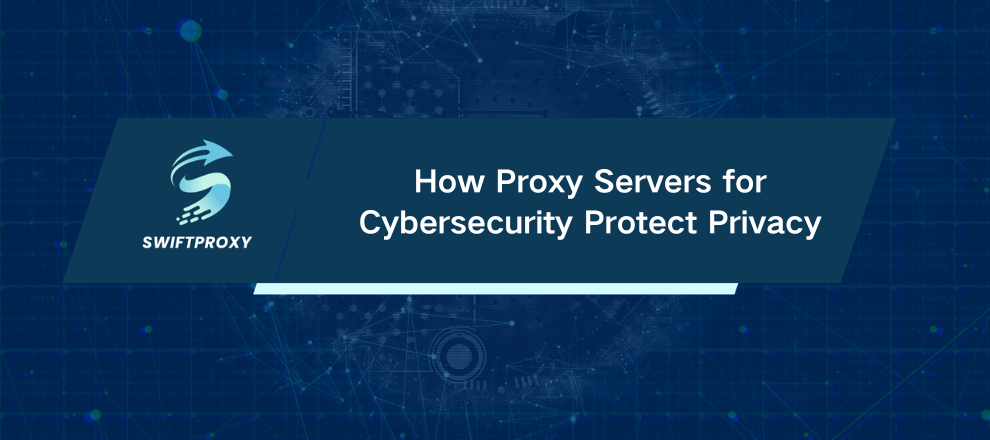How Proxy Servers for Cybersecurity Protect Privacy
Every click, every tap, every digital interaction leaves a footprint. Hackers, trackers, and even marketers can use it to follow you, profile you, or exploit your information. That’s where proxy servers come in. They don’t just hide your IP—they act as a gatekeeper, controlling traffic, enforcing rules, and keeping your digital life secure. In this article, we’ll break down the real benefits of proxy servers for cybersecurity, show how to identify trustworthy solutions, and give actionable tips to keep your networks safe.

Introduction to Proxy in Cybersecurity
Think of a proxy as a middleman between you and the websites you visit. Instead of connecting directly, your request passes through the proxy server. The website sees the proxy's IP—not yours. Your identity, location, and device details remain hidden.
But proxies do more than mask your IP. They control traffic, enforce access rules, and reduce risks from surveillance or cyberattacks. For businesses, they create a controlled environment where every request is filtered and monitored—protecting sensitive data and maintaining system efficiency.
Secure Proxy Server Advantages
Here's why a proxy isn't just nice-to-have—it's essential:
Hide your IP, hide your location. Targeted attacks? Harder to pull off. Surveillance? Thwarted.
Limit metadata exposure. Less tracking means fewer ads, fewer leaks, more privacy.
Block malicious content. Phishing sites, malware, and unsafe downloads get stopped before they reach you.
Speed things up. Frequently visited sites load faster, bandwidth costs drop—huge for organizations with heavy traffic.
Control access by user. Employees, departments, and user roles can all have tailored permissions.
Layer a proxy with antivirus, firewalls, or VPNs, and you've got a multi-tiered defense that actually works.
What Ensures a Proxy Server Is Secure
Not all proxies are created equal. A free, public proxy might sound tempting—but it's a ticking time bomb:
Content tampering. You could receive altered or malicious content without even noticing.
Shared IP headaches. Someone else's misuse could get your IP banned.
Data harvesting. Your browsing data could be collected and sold.
No support. Free services rarely offer help when connections fail.
For true cybersecurity, go with a paid, dedicated provider. Private IPs, no logs, stable infrastructure, and fast, reliable connections make all the difference.
How to Pick a Trusted Proxy Provider
A proxy is only as strong as the company behind it. Look for these key factors:
No-logs policy. Your activity should never be recorded or sold.
Secure protocols. HTTPS and SOCKS5 support are non-negotiable.
24/7 support. Problems need instant fixes.
Flexible authentication. Options like username/password, IP-based access, or tokens give control and security.
IP rotation. Automatic or manual switching keeps you agile and safe.
User-friendly dashboards. Efficient oversight and invoicing save time.
Global address options. Geolocation flexibility is essential for testing, scraping, or sensitive operations.
And yes—make sure they're a legitimate company with clear privacy and TOS policies.
How Hackers Misuse Proxies
Proxies aren't just tools for protection—they can be tools for attacks:
Masking IPs. Makes tracing a cyberattack difficult.
Botnets. Hundreds of compromised machines relay traffic.
Phishing. Emails appear legitimate, bypassing filters.
DDoS attacks and password cracking. Multiple endpoints hide origin.
Geo-fencing circumvention. Pretend to be anywhere in the world.
Knowing these tactics helps security teams block public relays, monitor unusual activity, and run ethical penetration tests.
When and How to Utilize Proxies
Here's where proxies shine:
Public Wi-Fi. Cafes, airports, malls—anywhere signals are open. Proxies hide your IP and filter threats.
Corporate networks. Combined with DLP systems, firewalls, and antivirus, proxies enforce controlled access.
Parental control. Block harmful sites, monitor activity, and protect children online.
Sensitive communications. Journalists, human rights advocates, and financial professionals can stay anonymous and secure.
Best practices:
Avoid free services.
Use only trusted software or browser extensions.
Keep filtering rules updated.
Layer defenses with antivirus, firewalls, and VPNs.
Enable server disconnection safeguards to prevent accidental exposure.
Monitor logs periodically for suspicious activity.
Final Thoughts
A proxy is far more than just an IP mask. It shapes traffic, enforces access rules, blocks domains, and keeps anonymity intact. Its real power comes when paired with other cybersecurity measures—antivirus, firewalls, and SIEM systems. Together, they create a dynamic, multi-layered defense suited for both individual and corporate use.
Proxies are a frontline tool for anyone serious about cybersecurity. Used smartly, they give you control, anonymity, and peace of mind in a digital world that's anything but safe.

















































